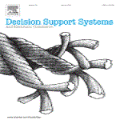Space agencies and private companies prepare the beginning of human space exploration for the 2030s with missions to put the first human on the Mars surface. The absence of gravity and radiation, along with distance, isolation and hostile environments, are expected to increase medical events where previously unseen manifestations may arise. The current healthcare strategy based on telemedicine and the possibility to stabilize and transport the injured crewmember to a terrestrial definitive medical facility is not applicable in exploration class missions. Therefore, the need for deploying the full autonomous capability to solve medical emergencies may guide the design of future onboard healthcare systems. We present ten basic principles and concept design of a software suite to bring onboard decision support to help the crew dealing with medical emergencies taking into consideration physiological disturbances in space and spaceflight restrictions. 1) give real-time support for emergency medical decision making, 2) give patient-specific advice for executive problem-solving, 3) take into account available information from life support and monitoring of crewmembers, 4) be fully autonomous from remote facilities, 5) continuously adapt predictions to physiological disturbance and changing conditions, 6) optimize emergency medical decision making in terms of mission fundamental priorities, 7) take into account medical supplies and equipment on board, 8) apply health standards for the level of care V, 9) implement ethics responsibilities for spaceflights, and 10) apply ethical standards for artificial intelligence. Based on these principles, we propose an autonomous clinical decision support system (CDSS) to provide real-time advice for emergency medical interventions on board of space exploration missions.
翻译:2030年代人类空间探索的开始,空间机构和私人公司准备为2030年代开始人类空间探索做准备,任务包括将第一位人类放在火星表面。没有重力和辐射,加上距离、隔离和敌对环境,预计会增加可能出现先前看不见现象的医疗事件; 目前的基于远程医疗的保健战略,以及稳定和将受伤的机组人员运送到陆界确定型医疗设施的可能性,在勘探级别飞行任务中不适用。因此,部署完全自主的医疗紧急情况应对能力的必要性,可能指导未来船上医疗系统的设计。我们提出十项基本原则和概念设计一套软件,以便考虑到空间和空间飞行限制中的生理扰动,为处理医疗紧急情况的乘员提供决策支持。 1) 为紧急医疗决策提供实时支持,2) 为解决行政问题提供针对病人的咨询,3) 考虑从生命支持和对机组人员的监测中获得的信息,4) 完全独立于远程设施,5) 持续根据生理扰动和变化条件调整预测,6) 优化在飞行任务基本优先事项方面作出的紧急医疗决策,7)考虑到船上的医疗用品和设备,8)对机组处理医疗紧急情况的机组人员提供医疗支持,8)对紧急医疗责任适用实时医疗责任,为紧急医疗责任,为紧急医疗责任,为紧急医疗任务提供实时医疗责任,对紧急医疗责任适用,对紧急医疗责任适用,对紧急医疗责任适用,10号飞行飞行飞行飞行飞行飞行指令,为管理提供自动要求,为提供标准,为飞行飞行要求提供标准,为飞行要求提供标准。





